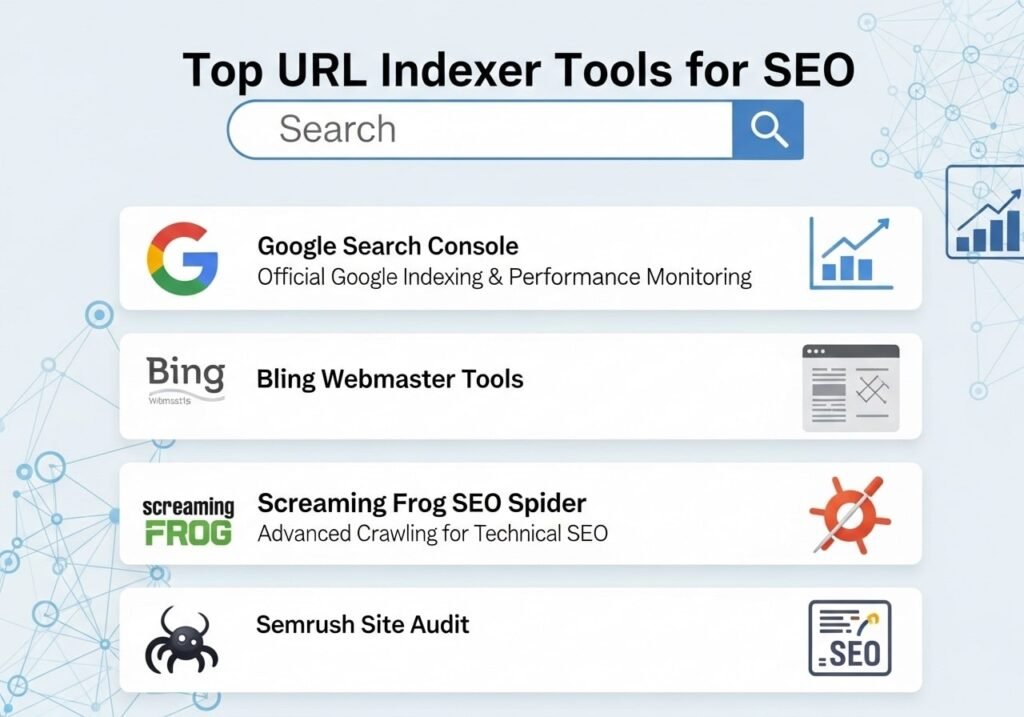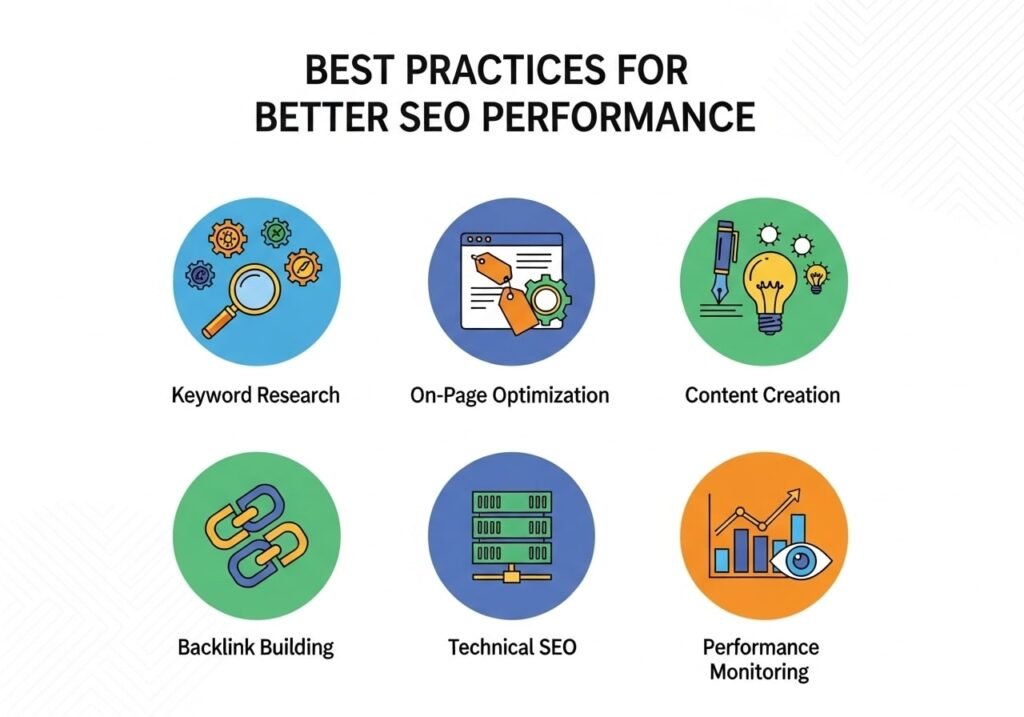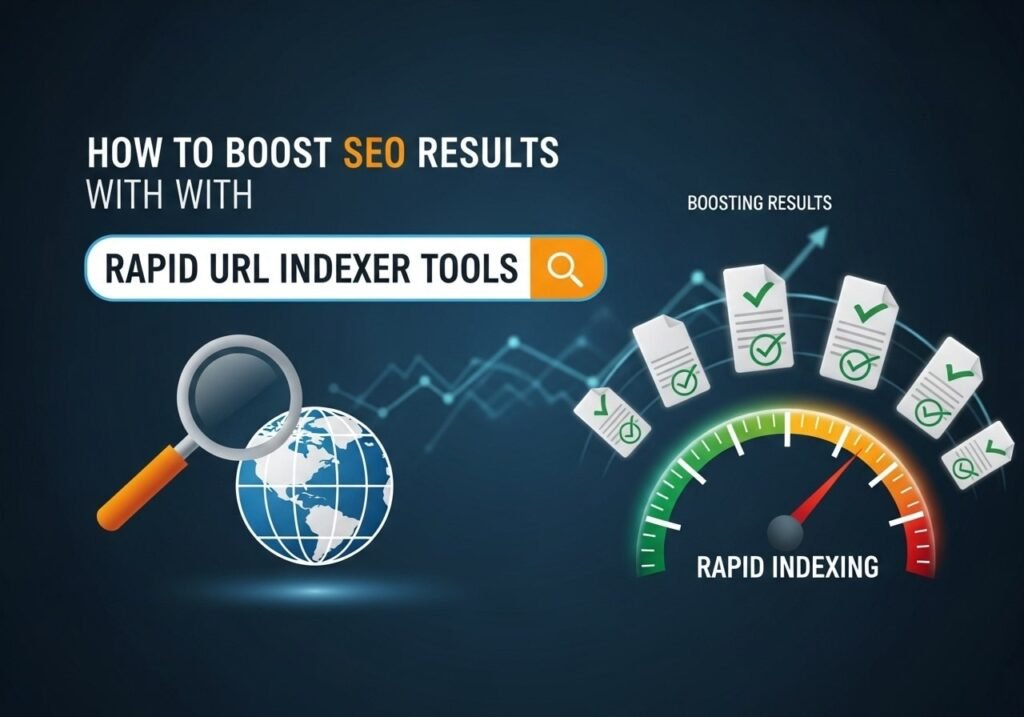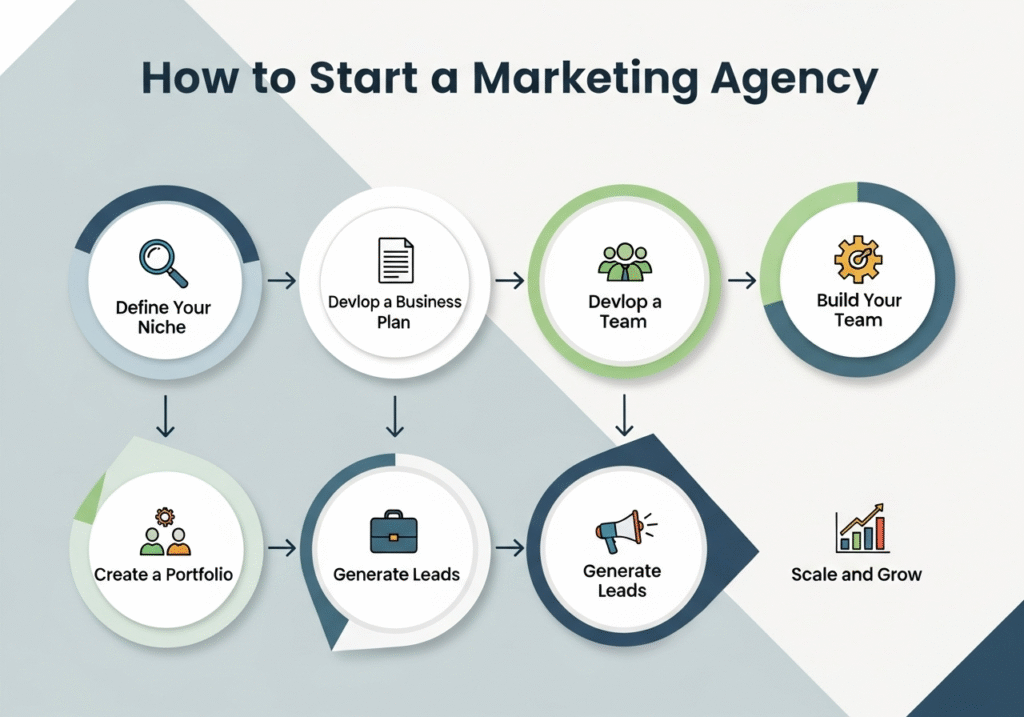Introduction
Getting better SEO results with rapid URL indexer tools has become a game-changer for website owners and digital marketers. When you publish new content or make changes to your website, you want search engines to find and include your pages as quickly as possible. This is where fast URL indexing for SEO becomes crucial for your online success.
Many website owners struggle with the waiting game. They create amazing content, optimize it perfectly, but then wait weeks or even months for Google to discover and index their pages. This delay can cost you valuable traffic, leads, and revenue. The good news is that there are proven methods and tools to speed up this process significantly.
What is URL Indexing and Why It Matters for SEO
URL indexing is the process where search engines like Google discover, crawl, and store your web pages in their database. Think of it as getting your content added to a massive library catalog. Until your page is indexed, it won’t show up in search results, no matter how well-optimized it is.
Here’s why rapid URL indexing for better rankings matters:
- Faster visibility: Your content appears in search results sooner
- Competitive advantage: You get ahead of competitors who wait for natural indexing
- Quicker traffic: Indexed pages can start bringing visitors immediately
- Better ROI: Your content marketing efforts pay off faster
The indexing process typically involves these steps:
- Discovery: Search engines find your URL through various methods
- Crawling: Bots visit your page and read the content
- Analysis: The content is analyzed and categorized
- Storage: Your page is added to the search engine’s index
- Ranking: Your page becomes eligible to appear in search results
The Problem with Slow URL Indexing
Without intervention, getting your pages indexed can take anywhere from a few days to several months. This happens because:
- Limited crawl budget: Search engines allocate limited resources to crawl each website
- Competition: Millions of new pages are published daily
- Website authority: New or low-authority sites get crawled less frequently
- Technical issues: Poor site structure can slow down discovery
The impact of slow indexing on your business can be significant:
- Lost opportunities while competitors rank first
- Delayed traffic growth
- Reduced content marketing effectiveness
- Slower revenue generation from new pages
This is where tools that improve SEO with URL indexer technology become invaluable for serious website owners.
How Rapid URL Indexers Work
URL indexer tools for SEO work by using various techniques to get search engines to notice and crawl your pages faster. Here are the main methods they use:
Ping Services
These services notify search engines about new or updated content on your website. When you submit a URL, the service sends signals to multiple search engines simultaneously.
Social Signals
Some tools create social media mentions and shares of your URLs, as search engines often discover content through social platforms.
Backlink Creation
Quality indexer tools create legitimate backlinks from indexed pages, helping search engines discover your content through established pathways.
RSS Feed Submission
Your URLs are added to RSS feeds that search engines regularly monitor for new content.
Search Engine Submission
Direct submission to search engines through their official channels, like Google Search Console.
Benefits of Fast URL Indexing for SEO
When you increase SEO results with quick indexing, you’ll experience several important benefits:
1. Immediate Search Visibility
Your content becomes searchable within hours or days instead of weeks or months. This is particularly important for:
- Time-sensitive content
- News articles
- Product launches
- Seasonal campaigns
2. Competitive Advantage
By getting indexed first, you can:
- Capture market share before competitors
- Establish topic authority
- Build momentum for your content
- Attract early backlinks
3. Faster Traffic Growth
Indexed pages can start bringing organic traffic immediately, leading to:
- Quicker return on content investment
- Earlier lead generation
- Faster revenue growth
- Better overall website performance
4. Improved Content Strategy Results
With faster indexing, you can:
- Test content performance sooner
- Make data-driven decisions faster
- Adjust strategies based on real results
- Scale successful content types quickly
Top URL Indexer Tools for SEO

Several SEO indexing tools for faster results are available in the market. Here are some popular options:
Free Tools
Google Search Console
- Direct submission to Google
- Monitor indexing status
- Identify crawling issues
- Free for all website owners
Bing Webmaster Tools
- Submit URLs to Bing
- Track indexing performance
- Access crawling data
- Completely free service
Premium Tools
Rapid URL Indexer Services
These specialized services often provide:
- Bulk URL submission
- Multiple search engine coverage
- Detailed reporting
- Priority support
All-in-One SEO Platforms
Many comprehensive SEO tools include indexing features:
- Automated submissions
- Integration with other SEO functions
- Advanced reporting
- Workflow automation
Choosing the Right Tool
Consider these factors when selecting your indexing solution:
- Budget: Free tools vs premium services
- Volume: How many URLs you need to index
- Speed: How quickly you need results
- Integration: Compatibility with your existing tools
- Support: Level of customer service needed
How to Speed Up URL Indexing for SEO
Learning how to get Google to index URLs faster involves both using tools and following best practices:
1. Optimize Your Website Structure
Create a Clear Site Architecture
- Use logical navigation menus
- Implement breadcrumb navigation
- Create category hierarchies
- Link related content together
Improve Internal Linking
- Link to new pages from existing indexed pages
- Use descriptive anchor text
- Create topic clusters
- Add links from high-authority pages
2. Submit Your Sitemap
XML Sitemaps
- Include all important URLs
- Update regularly when adding content
- Submit to search engines
- Monitor for errors
HTML Sitemaps
- Help users navigate your site
- Provide additional crawling paths
- Improve user experience
- Support SEO efforts
3. Create High-Quality Content
Focus on User Value
- Solve real problems
- Provide comprehensive information
- Use engaging formats
- Update content regularly
Optimize for Search Engines
- Include relevant keywords naturally
- Use proper heading structure
- Add meta descriptions
- Optimize images and media
4. Build Authority and Trust
Earn Quality Backlinks
- Create link-worthy content
- Reach out to relevant websites
- Guest posting on authority sites
- Participate in industry discussions
Social Media Promotion
- Share new content on social platforms
- Engage with your audience
- Build a community around your brand
- Encourage social sharing
Best Practices for Better SEO Performance

To index URLs quickly for better SEO performance, follow these proven strategies:
Technical Optimization
Page Speed Optimization
- Compress images and files
- Use content delivery networks (CDNs)
- Minimize code and scripts
- Choose fast hosting providers
Mobile-First Design
- Ensure responsive design
- Test on multiple devices
- Optimize for touch interactions
- Prioritize mobile user experience
Clean URL Structure
- Use descriptive URLs
- Avoid unnecessary parameters
- Keep URLs short and readable
- Use hyphens to separate words
Content Strategy
Regular Publishing Schedule
- Maintain consistent content creation
- Plan content calendars
- Focus on quality over quantity
- Cover topics comprehensively
Content Updates
- Refresh existing content regularly
- Add new information to popular posts
- Fix outdated information
- Improve content based on performance data
Monitoring and Maintenance
Regular Site Audits
- Check for crawl errors
- Monitor indexing status
- Fix broken links
- Update outdated content
Performance Tracking
- Monitor organic traffic growth
- Track keyword rankings
- Analyze user behavior
- Measure conversion rates
Common Mistakes to Avoid
When working to achieve rapid URL indexer for improved SEO rankings, avoid these common pitfalls:
Over-Submission
- Don’t submit the same URL multiple times daily
- Avoid spamming submission services
- Focus on quality over quantity
- Be patient with the process
Ignoring Quality
- Don’t sacrifice content quality for speed
- Avoid thin or duplicate content
- Focus on user value first
- Maintain editorial standards
Technical Issues
- Fix crawl errors promptly
- Ensure pages load quickly
- Make content accessible to crawlers
- Keep site architecture clean
Unrealistic Expectations
- Indexing doesn’t guarantee rankings
- Quality content still matters most
- Building authority takes time
- Focus on long-term success
Measuring Your Indexing Success
Track these metrics to evaluate your indexing efforts:
Indexing Metrics
- Number of indexed pages
- Time from publication to indexing
- Indexing success rate
- Coverage issues in Search Console
Traffic Metrics
- Organic traffic growth
- Time to first organic visitor
- Click-through rates from search
- Conversion rates from organic traffic
Ranking Metrics
- Keyword position improvements
- Featured snippet appearances
- Local search visibility
- Mobile search performance
Tools for Monitoring
- Google Search Console
- Google Analytics
- Third-party SEO tools
- Rank tracking software
Conclusion
Achieving better SEO results with rapid URL indexer tools is both an art and a science. By combining the right tools with proven strategies, you can significantly reduce the time it takes for your content to appear in search results and start driving traffic to your website.
Remember that fast indexing is just the first step. Creating high-quality, valuable content that serves your audience’s needs remains the foundation of long-term SEO success. Use rapid indexing tools to get your great content discovered faster, but never compromise on quality for speed.
The investment in fast URL indexing for SEO pays dividends through increased visibility, faster traffic growth, and better competitive positioning. Start implementing these strategies today, and you’ll see the difference in your search performance.
Ready to speed up your URL indexing? Begin by auditing your current indexing performance, choose the right tools for your needs, and implement the best practices outlined in this guide. Your future search traffic will thank you for taking action now.



